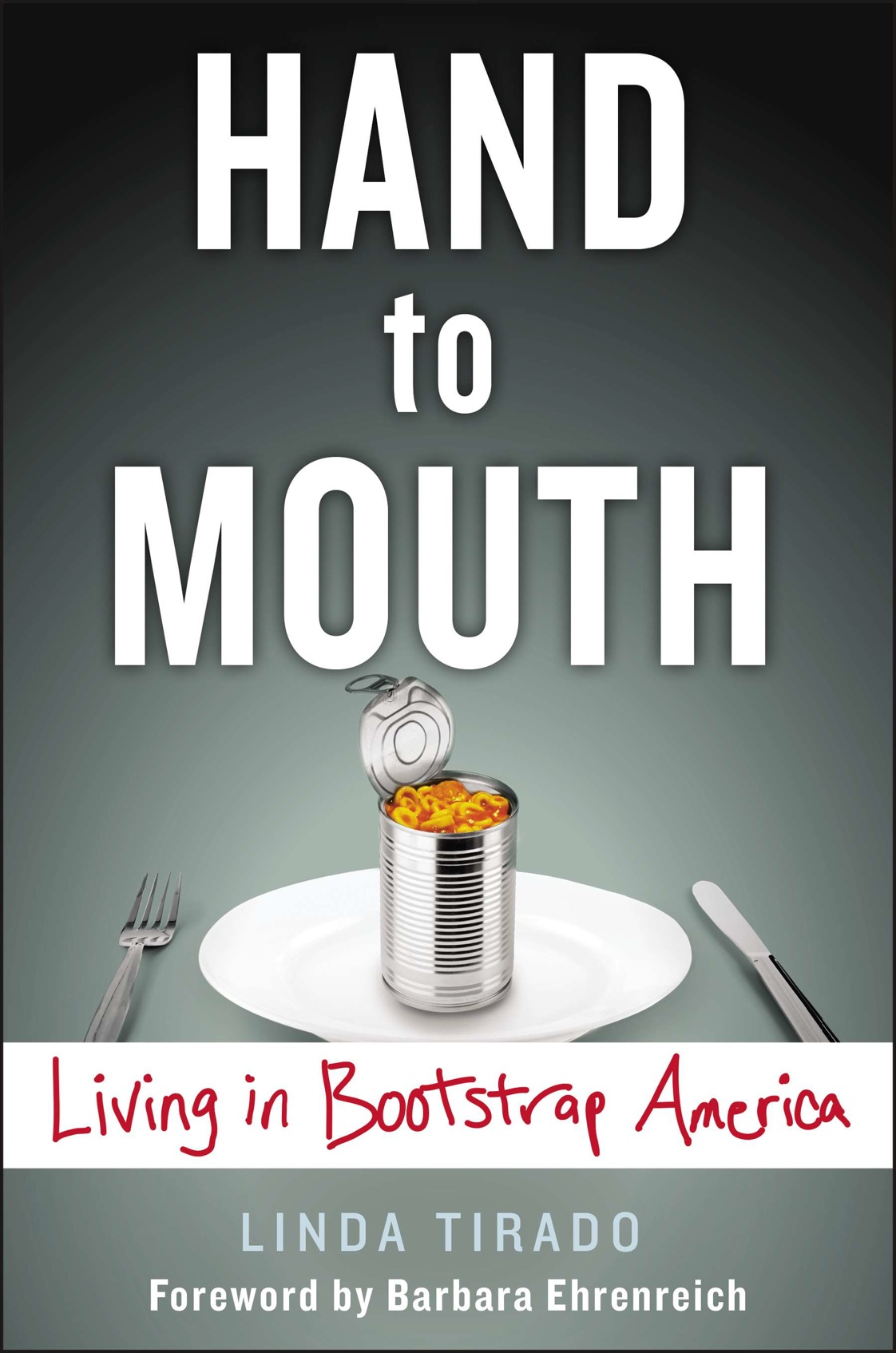
Hand to Mouth
Living in Bootstrap America
کتاب های مرتبط
- اطلاعات
- نقد و بررسی
- دیدگاه کاربران
نقد و بررسی

Starred review from November 10, 2014
In this gripping memoir, Tirado, author of the online essay "Why I Make Terrible Decisions, or, Poverty Thoughts," stands before us, her bad habits (swearing, smoking) and bad decisions fully on display, to say that even with the best-laid plans, poverty can happen to anyone. When red tape and a summer storm left her and her husband without a home and with nearly nothing to their names, the couple slid into the demoralizing treadmill that is poverty in America. With critical insight and palpable fury, Tirado tears down common assumptions and superior attitudes about the working poor, from entitlement issues to finance management, and rounds it out with some hard truths about the lack of opportunities for mobility, from the inability to survive an unpaid internship to the full-body impact of commuting an hour or more every day on foot. Articulate, insightful, and saturated with life experience, Tirado's story is not unlike millions of others in America, but her strong voice has the opportunity to bring that story to new ears.

September 1, 2014
A challenged mom on welfare gets personal. Having once lived in a weekly motel, Tirado responded to an Internet thread about what some perceive as poor people's questionable choices. Her raw, defeatist perspective went viral and fuels much of this book's emotional reflections on "trying to get back to the starting line" after years subsisting at the poverty level. Resisting the temptation to cast blame on capitalism or random stratification, Tirado attributes her situation to "a mix of my own decisions and some seriously bad luck" and describes the freak rainstorm that flooded and destroyed the contents of her apartment while she was pregnant. Once evicted, things spiraled downward. To live, Tirado embarked on a physically exhaustive, "soul-killing" three-job routine requiring her to shuttle (for miles on foot) from one low-wage, part-time job to the next. The jobs she did qualify for were undercompensated and harmful: a fry cook at a fast-food restaurant or tending bar for a boss who expected sexual favors in exchange for prime shifts. As someone who has lived in the trenches of desperation, Tirado explains that being poor is difficult not just in attempting to scrape by, but also in processing the cultural perception and resultant condescension and degradation from unsympathetic onlookers. Her tone oscillates from educative and resilient, when discussing access to preventive medical care and discount food, to heatedly defensive, as when justifying a poor person's bad work attitude as a "survival mechanism" or the moral compass of someone who is penniless yet smokes, drinks and drives uninsured. Tirado's raw reportage offers solidarity for those on the front lines of hardship yet issues a cautionary forewarning to the critical: "Poverty is a potential outcome for all of us." Outspoken and vindictive, Tirado embodies the cyclical vortex of today's struggle to survive.
COPYRIGHT(2014) Kirkus Reviews, ALL RIGHTS RESERVED.

October 1, 2014
In 2013, Tirado was declared the voice of millions after her blog post, "Why I Make Terrible Decisions, or Poverty Thoughts" went viral. The author has since taken that post and expanded it, offering a frank account on her experiences with work, sex, parenthood, and health care while earning minimum wage (or less) and living in poverty. She makes no apology for her anger or bluntness; in fact, her final chapter addressing "rich people" may cause pause, not for its truth, but for its assumptions. Those who have worked for minimum wage as an adult or have held multiple jobs to make ends meet may question Tirado's sometimes unconscionable methods of earning a living. There is no question that her struggles are real, yet one may wonder if her diatribes are helpful. This title should be read with the foreknowledge that the author was not born into poverty, but came to it after dropping out of college and setting out on her own. This is mentioned because there is another faction living without choice, the impoverished who may actually be hindered by a book that inadvertently reinforces negative stereotypes. VERDICT Readers of Barbara Ehrenreich's Nickel and Dimed (2001) and online followers of Tirado may find the author's debut book of interest. [See Prepub Alert, 4/27/14.]--Angela Forret, Clive P.L., IA
Copyright 2014 Library Journal, LLC Used with permission.

























دیدگاه کاربران